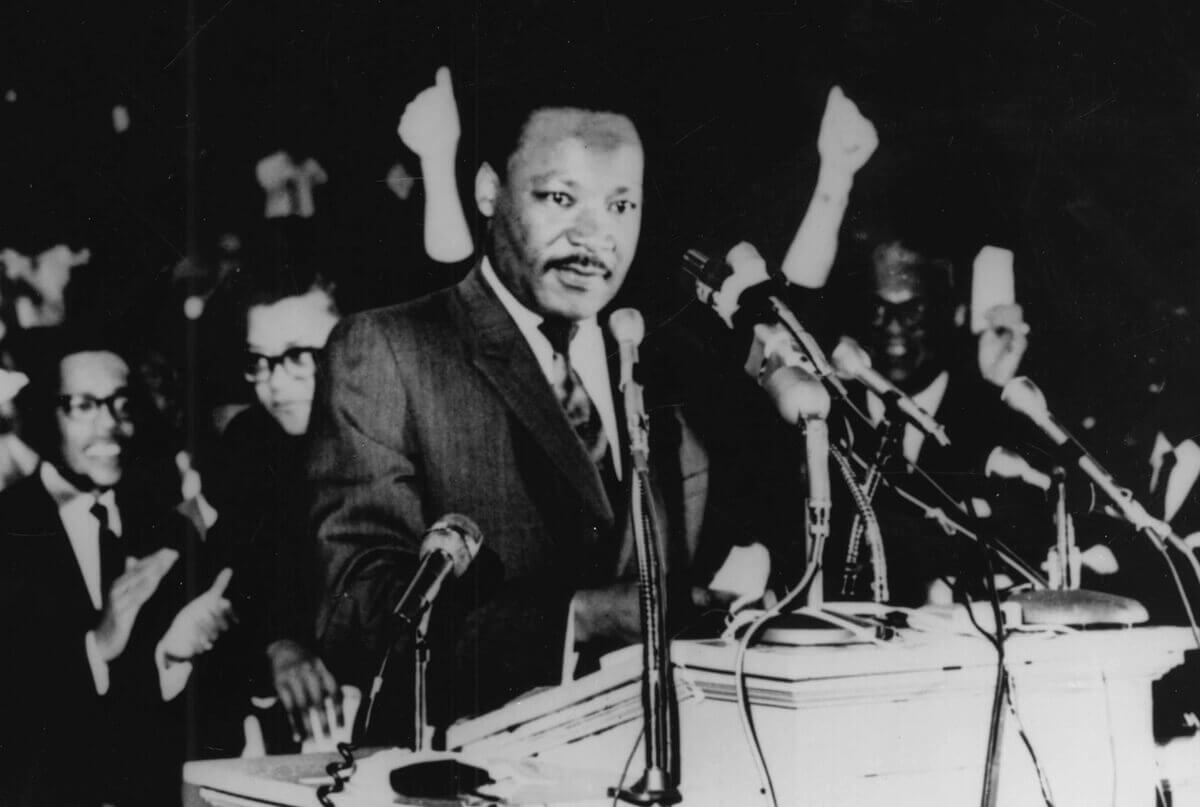This week I gave a talk about the Reverend Martin Luther King Jr. and his important legacy. I shared images of King’s life and work advancing civil rights for Black people. I tried to connect Colorado Academy’s mission of promoting courage and kindness to the message that King conveyed to the American people. I read a newsletter that a grandparent sent me about how patriotic King was and how he often referred to the words of the Declaration of Independence and the United States Constitution to justify civil rights reforms. He also adeptly played off of the Cold War and compared the totalitarian nature of communist states to the restrictions against Blacks in the American South. He understood how to make all Americans understand the injustice of segregation. And, after helping secure the Civil Rights Act of 1964 and the Voting Rights Act of 1965, King had taken up the goal of fighting systemic discrimination across the nation before his tragic assassination.
I tried to drive home the idea that our school is a place where everyone needs to have a sense of belonging. We all need to feel supported and respected by other members of our community. We need to live our lives in a way that lifts up those around us.
At the closing of my talk, I played a clip from King’s last oration, his famous “I’ve Been to the Mountaintop” speech, delivered in 1968. He was in Memphis at the time, helping to support a strike by the city’s sanitation workers. It is impossible not to be affected emotionally by this speech.
The next day, King would be killed; his words seemed to predict his fate:
Like anybody, I would like to live a long life; longevity has its place. But I’m not concerned about that now. I just want to do God’s will. And He’s allowed me to go up to the mountain. And I’ve looked over. And I’ve seen the Promised Land! I may not get there with you, but I want you to know tonight, that we, as a people, will get to the Promised Land!
What we witness here is King at his best. There is no script. He speaks with powerful emotion. He talks about court injunctions intended to stop the strike, and he decries the way these violated fundamental aspects of our First Amendment rights.
At this point, King was literally a hunted man. There had been other attempts on his life. The FBI was harassing him and trying to intimidate him. He was under enormous strain. Younger, more militant civil rights leaders did not understand the truly radical nature of his agenda, as they rejected non-violence. By radical, I mean that he rejected the use of violence even as those in power used violence in brutal ways against those seeking justice.
See and hear the passion as King delivers his final and prophetic talk. I hope we get to that mountaintop.
